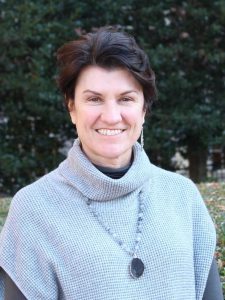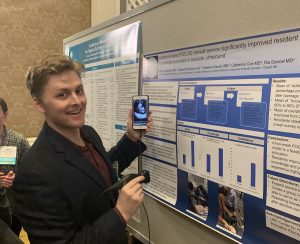For Debra Bynum, MD, her position as director of the Internal Medicine Residency Program at UNC School of Medicine is deeply personal.
Originally hailing from Jacksonville, North Carolina, and being the first in her family to finish high school, lifelong learning became Bynum’s top value. She entered UNC School of Medicine and instantly fell in love, staying for her residency and beyond.
“I loved my time in medical school, but I really loved my residency training,” Bynum said. “It’s a challenging time learning how to care for patients in the real world, and it’s also a time where you make friends for life – I’m still very close with my co-residents after all these years.”
Bynum sees working with trainees during a unique and transitional period in their lives as paying it forward after her own experience.

“I look back on my residency as the time that truly shaped me – taking care of patients and the people of North Carolina. Residency is where I learned how to be the person I am now, and it means a lot to me to give back to the place that opened up so many opportunities for me.”
Bynum’s giving back has not stopped at her leadership of the Internal Medicine Residency Program. Bynum made lead gifts to create the Internal Medicine Resident Professional Development Fund and the Resident Wellness Fund – two initiatives that have quickly become an important source of support for residents in everyday clinical activities as well as beyond the hospital walls.
Going the Extra Mile
“Before I was program director, it never even occurred to me to donate to residency support,” Bynum said. “But I realized quickly the critical need was there to help residents with funds for professional development and wellness. As a director looking at real budgetary issues, I recognized that that while the medical school has a lot of publicity and drives for support, we weren’t doing the same for the residency program. I think many people think of residents as just employees doing a job, but at the same time they are still trainees. That was the main motivator for me to shift my focus to support for residents.”
The funds support wellness sessions, celebrations, social activities outside of clinic and meals for weekly conferences and meetings where residents may not otherwise have time to eat. Additionally, the funds can help make ends meet for residents facing a health or financial crisis.
Most residents spend nearly 80 hours in the hospital each week. While residents have a salary, Bynum says that many also have a large amount of student loan debt from medical school. This can be especially challenging when offered an opportunity to attend or present at a professional conference – an important career step.
“If you have an opportunity as a resident to go to a conference that may cost thousands of dollars to attend, it’s a huge hit financially,” Bynum said. “But conferences are an absolute necessity – a lot of times residents are presenting their own research. One of our residents was offered the opportunity to present his work on healthcare disparities in Copenhagen. It was amazing work that he was presenting, but he was going to have a hard time affording that kind of trip. With the Professional Development Fund, were able to help get him there.”

The funds have directly enhanced patient care by enabling the residency program to purchase portable point-of-care ultrasound (PoCUS) machines and iPads for accessing electronic health records real-time during a patient visit. PoCUS has become an essential part of resident training by allowing for quicker and more accurate diagnoses right in the patient room.
In addition to Bynum’s Professional Fund, donor Joan Ontjes created the David Ontjes Residents as Teacher Program in memory of her husband, David, the youngest person ever appointed as chair of the Department of Medicine.
“David was passionate about training and the spirit of education,” Ontjes said. “This is how he would want the funds to be used.”
The Ontjes Program fund supports two important residency programs – Resident as Teacher meetings, a once per week breakfast meeting to help residents become better teachers as they work with medical students and interns – and the Residents’ Report, a meeting that happens four times per week for residents to discuss work with specific patients and outcomes.
“Donors like Joan have been incredible with their support of helping residents learn important teaching skills and patient care experience,” Bynum said.
Bynum’s Professional Fund has also enabled residents to bring innovative education and patient care practices to UNC from peer institutions as well as expand their skills and experiences outside of the clinic
“Pre-COVID, we had multiple residents a year who we’ve been able to fund for international work in Peru, Nicaragua and Malawi,” Bynum said. “We’ve been able to support residents who want to do work through Gillings School of Global Public Health, or courses and workshops in qualitative research, arts and humanities. We want to help them become well-rounded in their careers as physicians.”
Passing It On
“We get residents from all over – some who have never even been to North Carolina – and many even stay for good,” Bynum said. “The mission of the residency program and UNC overall really resonates. We are training students, residents and fellows to be the future physician workforce, and we need to support them every step of the way. Even small gifts go a very long way – a meal, a wellness activity, an ultrasound device – and they are so appreciated.”
Bynum believes her formative experiences and relationships during residency training were powerful in her decision to give back, and is confident that the tradition will continue.
“I’ve always felt that I owe something to UNC, and it really has been the place that’s formed who I am. Being in a position where I’ve been given so many opportunities and been so fortunate, philanthropic giving helps me to feel that I am contributing to other people – residents in my shoes who will be me one day – and impacting them. One day they will look back and have fond memories, and I hope they feel that same commitment and sense of loyalty and continue the cycle.”
For more information on how to support resident funds and the Department of Medicine, please contact Beth Braxton, Director of Development, at beth_braxton@med.unc.edu.
To make a gift, click here.
